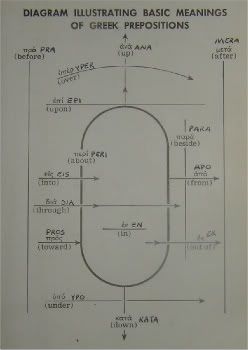Drew
Member
- Jan 24, 2005
- 14,249
- 81
This post is specifically in relation to the "sub-theme" of the nature of the atonement that some of us are discussing:
One central dimension of the atonement question is how we conceive of “sin†- what ‘category of thing’ sin is, at least in the atonement context (the term “sinâ€, like many others, almost certainly has other meanings in other contexts). I suggest that most 21st century western evangelicals think of sin in the atonement context as a somewhat abstract “legal†construct: when a person does something that violates Christian principles (such as cheat on a spouse), then some abstract judgement is rendered to the effect that this person is “in the wrongâ€. The important point is that sin, thus conceived, is really an entirely abstract determination, decoupled from the “physicality†of the person in question. On this view, sin is like the concept of “winning a tennis game†– when one wins a tennis game, some judgment is made, based on some observations of what happened in the game, to the effect that the person has meet the specified criteria for winning a tennis game. By contrast, there is no sense at all in which the winner personally manifests the fact of winning a tennis game. The fact of winning the tennis game is highly de-coupled from the “personhood†of the winner – it is not really a part of “who the person is†in any reasonable sense. Instead it is a judgement whereby the results of that person’s actions are categorized – and such categorical judgement are by their nature purely abstract.
I suggest a different option for how we think of sin in the atonement context, one where “sin†is much more “physical†and far less abstract. More specifically, I suggest that sin (in the atonement context) should be conceived in terms of the following complementary aspects, or dimensions:
1. An evil force or power;
2. A stain, or contamination.
.....more shortly.
One central dimension of the atonement question is how we conceive of “sin†- what ‘category of thing’ sin is, at least in the atonement context (the term “sinâ€, like many others, almost certainly has other meanings in other contexts). I suggest that most 21st century western evangelicals think of sin in the atonement context as a somewhat abstract “legal†construct: when a person does something that violates Christian principles (such as cheat on a spouse), then some abstract judgement is rendered to the effect that this person is “in the wrongâ€. The important point is that sin, thus conceived, is really an entirely abstract determination, decoupled from the “physicality†of the person in question. On this view, sin is like the concept of “winning a tennis game†– when one wins a tennis game, some judgment is made, based on some observations of what happened in the game, to the effect that the person has meet the specified criteria for winning a tennis game. By contrast, there is no sense at all in which the winner personally manifests the fact of winning a tennis game. The fact of winning the tennis game is highly de-coupled from the “personhood†of the winner – it is not really a part of “who the person is†in any reasonable sense. Instead it is a judgement whereby the results of that person’s actions are categorized – and such categorical judgement are by their nature purely abstract.
I suggest a different option for how we think of sin in the atonement context, one where “sin†is much more “physical†and far less abstract. More specifically, I suggest that sin (in the atonement context) should be conceived in terms of the following complementary aspects, or dimensions:
1. An evil force or power;
2. A stain, or contamination.
.....more shortly.









